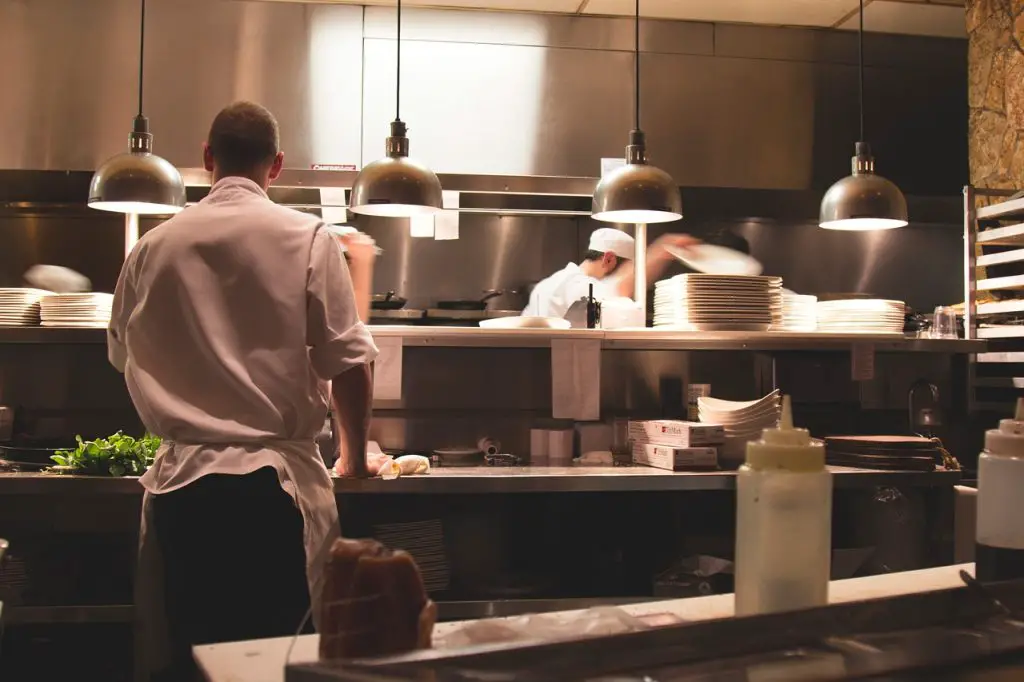Cooking oil and grease are common byproducts of culinary endeavors, but disposing of them improperly can have adverse environmental and plumbing consequences. When oil and grease are poured down the drain or thrown in the trash, they can clog pipes, contaminate water sources, and harm aquatic life. In this article, we will explore the various methods for disposing of cooking oil and grease safely, ensuring you minimize your environmental impact while maintaining a clean and functional kitchen.
Understanding the Problem
Before delving into disposal methods, it’s essential to understand why pouring cooking oil and grease down the drain or into the trash is problematic.
Clogged Pipes: When cooking oil and grease are hot, they are in liquid form. However, as they cool, they solidify and adhere to the inside of pipes. Over time, this buildup can lead to clogs, reducing water flow and causing costly plumbing issues.
Environmental Impact: Improper disposal of cooking oil and grease can contaminate water sources. When these substances reach rivers, lakes, or oceans, they create a film on the water’s surface, disrupting ecosystems and harming aquatic life. This contamination can also seep into the soil, affecting plant life and groundwater.
Legal Consequences: Many municipalities have regulations against improper disposal of cooking oil and grease. Violating these regulations can result in fines and other penalties.
Now that we understand the issues, let’s explore safe and responsible methods for disposing of cooking oil and grease.
Safe Disposal Methods
Reuse the Oil
One of the most eco-friendly ways to dispose of cooking oil is to reuse it. Many types of cooking oil can be filtered and used for multiple rounds of frying. To do this:
Allow the oil to cool completely.
Use a fine-mesh strainer or a coffee filter to remove food particles and impurities.
Store the filtered oil in a clean, airtight container for future use.
By reusing oil, you not only save money but also reduce the amount of oil that needs disposal.
Solidify and Dispose of in the Trash
For cooking oil and grease that cannot be reused, solidifying and disposing of them in the trash is a safe option. Follow these steps:
Let the oil or grease cool down but not solidify completely. It should still be in a semi-liquid state.
Pour it into a disposable container, such as an empty milk carton or a plastic container with a lid.
Seal the container securely and place it in the freezer. This will cause the oil to solidify.
Once the oil is solid, you can safely dispose of it in the trash. Be sure to check your local regulations for any specific guidelines on oil disposal in your area.
Recycling Centers
In some areas, recycling centers accept used cooking oil for recycling. This oil can be converted into biodiesel, a renewable and environmentally friendly fuel source. Check with your local recycling facilities or waste disposal centers to see if they have programs for collecting used cooking oil.
Composting
If you have a compost pile or bin, small amounts of cooled cooking oil and grease can be added in moderation. However, it’s crucial to use oil sparingly in compost because excessive amounts can create a greasy mess and disrupt the composting process. Mix it with other organic materials, such as food scraps and yard waste, to balance the compost.
Cooking Oil Recycling Programs
Some areas have specific cooking oil recycling programs or drop-off locations where you can dispose of used cooking oil safely. These programs typically collect used oil for recycling into biofuels or other products. Check with your local environmental agencies or waste management providers to find out if such programs exist in your community.
Grease Traps
In commercial kitchens or food service establishments, the use of grease traps is common. Grease traps are designed to capture and separate oil and grease from wastewater before it enters the sewer system. If you operate a restaurant or food-related business, ensure that your grease trap is properly maintained and emptied by a licensed professional to prevent blockages and environmental issues.
Preventing Oil and Grease Buildup
While proper disposal is crucial, it’s equally important to take steps to prevent excessive oil and grease buildup in your kitchen. Here are some tips to help you minimize the amount of cooking oil and grease you need to dispose of:
Use Minimal Oil: When cooking, try to use the least amount of oil necessary to achieve your desired results. Using excessive oil not only leads to more waste but also adds unnecessary calories to your meals.
Drain and Blot: After frying foods, place them on a paper towel-lined plate to drain excess oil. You can also blot them with additional paper towels to remove any surface oil.
Use Cooking Techniques That Minimize Oil: Consider baking, grilling, steaming, or broiling as cooking methods that require less oil compared to deep-frying.
Dispose of Food Scraps Properly: Ensure that leftover food scraps, such as those containing oil and grease, are disposed of in a trash bin or composted, rather than washed down the sink.
Clean Cooking Utensils and Appliances: Regularly clean cooking utensils, pans, and appliances to prevent the buildup of grease and oil residue.
Install Grease Interceptors: In commercial kitchens, installing grease interceptors can help capture and remove grease before it enters the wastewater system, reducing the risk of blockages and environmental harm.
Properly disposing of cooking oil and grease is essential for both environmental conservation and maintaining functional plumbing systems. By following the safe disposal methods outlined in this article, you can play your part in protecting water sources and preventing plumbing problems. Remember to check your local regulations and explore recycling programs to ensure you are disposing of cooking oil and grease in the most responsible way possible. Additionally, adopting habits that minimize oil and grease usage in your cooking can help reduce the need for disposal in the first place, promoting a more sustainable and eco-friendly kitchen environment.
Beyond responsible disposal, it’s important to be proactive in preventing oil and grease buildup in your kitchen. By following these additional tips, you can reduce the amount of waste you generate and maintain a cleaner cooking environment:
Use Oil-Less Cooking Methods: Consider incorporating oil-less cooking methods into your repertoire. Techniques like steaming, grilling, and baking can yield delicious results with minimal oil usage.
Invest in Quality Cookware: High-quality non-stick cookware can significantly reduce the amount of oil needed when preparing meals. Properly seasoned cast iron pans can also provide a non-stick surface with minimal oil usage.
Properly Store Cooking Oil: Store your cooking oil in a cool, dark place away from direct sunlight and heat sources. Proper storage can extend the shelf life of your oil, reducing the need for frequent disposal.
Monitor Oil Temperature: Maintain the correct cooking temperature to prevent oil from breaking down and becoming less effective. Overheated oil not only loses its cooking qualities but can also produce harmful fumes.
Filter and Reuse: When frying, consider filtering and reusing cooking oil several times, as long as it remains clear and free from debris. This not only conserves oil but also reduces waste.
Educate Household Members: Ensure that everyone in your household is aware of proper oil and grease disposal practices. Consistent adherence to these practices can make a significant difference in reducing environmental impact.
Dispose of Large Quantities Responsibly: If you find yourself with a significant amount of used cooking oil and grease, consider using a local recycling program, drop-off location, or a dedicated waste disposal service that specializes in oil collection.
Regularly Clean Cooking Surfaces: Routinely clean your stovetop, oven, and kitchen appliances to remove oil and grease residue. This not only maintains a hygienic environment but also prevents the buildup of flammable substances.
Use Absorbent Materials: Place absorbent materials, like paper towels or disposable cloths, under greasy items in the refrigerator or pantry to catch any leaks or spills, preventing oil and grease from accumulating on surfaces.
Support Eco-Friendly Alternatives: Keep an eye out for environmentally friendly alternatives to traditional cooking oils, such as plant-based cooking sprays or cooking methods that use minimal oil.
Incorporating these practices into your cooking routine and kitchen maintenance can significantly reduce your environmental footprint and contribute to a more sustainable lifestyle.
Properly disposing of cooking oil and grease is not only a responsible practice but also a way to protect the environment, prevent plumbing issues, and adhere to local regulations. By following the safe disposal methods outlined in this article and adopting habits that minimize oil and grease usage, you can maintain a clean and eco-friendly kitchen while doing your part to conserve resources and protect the planet. Remember that small changes in your cooking and disposal habits can lead to significant improvements in sustainability over time, benefiting both your household and the environment.




